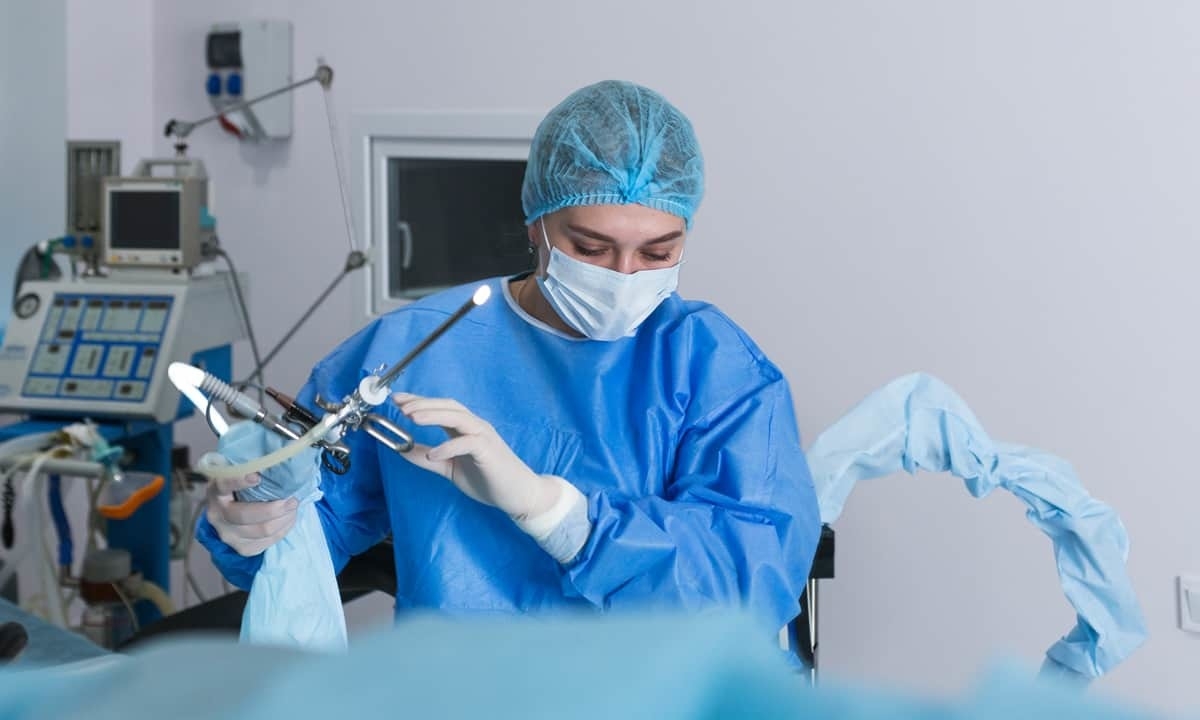
Best Gastroenterologist Near Me
There are some things you never want to search for on the internet, such as "when to see a gastroenterologist." In reality, looking for a "gastroenterologist near me" could be one of the most important things you can do—and it might even save your life.
When Should You See a Gastroenterologist?
Gastroenterology is a vast and varied section of internal medicine covering everything involving the process of digestion. This field covers specialized care for everything that can go wrong from your mouth to your anus and every organ in your digestive system. Digestive diseases like colorectal cancer, Crohn's disease, or cirrhosis are well known, but even seemingly innocuous conditions like persistent heartburn might land you in a gastroenterologist's office.
You will likely visit a gastroenterologist (or GI doctor) if serious conditions like blood in your stool indicate something may be wrong inside of you. Even if you are in perfect health, as you grow older it is likely you will be referred to a GI doctor for cancer screenings and other diagnostic procedures.
Another reason you may want to develop a relationship with a local gastroenterologist is if you have a family history of certain kinds of digestive problems or cancers. You may not be experiencing symptoms at present, but if others in your family have been diagnosed with celiac disease or colon cancer, it pays to be proactive. Knowing you have a specialist you can work with for screenings and testing is even more important if you know you could be at an increased risk for disease.
Gastroenterologists Treat More Than Colon Cancer
Many people think of GI doctors as physicians who treat colorectal cancer, but there is a wide range of conditions and diseases included in digestive healthcare. Other conditions of the digestive tract treated by gastroenterologists include the following:
- celiac disease
- hemorrhoids
- inflammatory bowel disease (IBD)
- liver disease
- colon cancer
- irritable bowel syndrome (IBS)
- ulcerative colitis
- gastroesophageal reflux disease (GERD)
As you grow older you will likely be referred to a gastroenterologist for various kinds of screenings and diagnostic tests like colon cancer screenings, colonoscopies, and other tests to evaluate your overall digestive health.
If you are having problems with your poop, or maybe you started to see blood in your stool, your primary care doctor will refer you to a specialist who can look more closely into what is going on in your digestive tract. Some of the symptoms of digestive disease that can be concerning include:
- leakage or underwear stains
- bowel movements that are difficult to control
- diarrhea
- lethargy
- rectal bleeding
- pale or very dark-colored stools
- unexplained weight loss
- dark urine
- bloating
- changes to your bowel habits
- heartburn (acid reflux)
- abdominal pain or bloating
- excessive gas or belching
- loss of appetite
- esophageal pain
- vomiting
Getting the Medical Advice You Need During Coronavirus
In light of the ongoing coronavirus pandemic, it would be easy to put off a routine colonoscopy, or even an appointment to discuss acid reflux or bloating. Perhaps you had a cancer screening scheduled for earlier in 2020 and had to cancel it because of COVID-19. At Cary Gastroenterology, we want to help you be proactive about your digestive healthcare. That is why we are offering telemedicine appointments so you can talk to our team of physicians while minimizing your possibility of exposure to disease.
Many problems with your digestive tract can lie hidden for long periods of time and are only diagnosed when they become quite serious. This is why many people need rapid treatment once a diagnosis has been defined. Making sure you find and establish a relationship with the best gastroenterologist near you can save precious time when it matters most. This is why searching for “best gastroenterologists near me” is recommended.
If you have suddenly started to experience some of the symptoms identified above, don’t wait to seek treatment. Rapidly diagnosing serious conditions like colorectal cancer can mean the difference between life and death. Whether you are concerned about ongoing symptoms or you just want to be proactive about your digestive health, request an appointment with us at Cary Gastroenterology Associates.